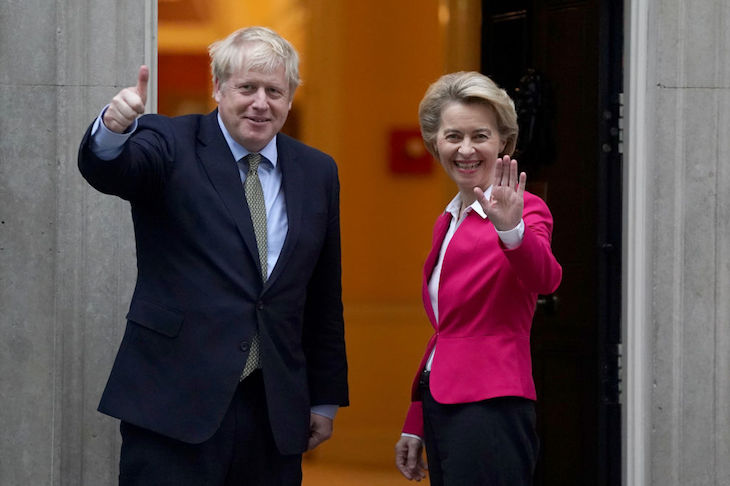This week has shown how much the election has changed. The withdrawal agreement has sailed through the Commons and in Northern Ireland, there has been an agreement to get the assembly and the executive back up and running. As I say in The Sun this morning, ministers were struck by how Brexit got only the briefest of mentions at Cabinet this week despite the legislation being before the House. Pre-election, the whole conversation would have been about whether the government had the votes and what it should do if it did not.
Boris Johnson is very keen that this year isn’t dominated by Brexit. Sat Cabinet this week, he again emphasised that ministers should ‘banish Brexit’ from their lexicons after January 31st. He wants ministers to stop talking about Brexit once the UK has left as he doesn’t want the trade negotiations with the EU to dominate British politics in the way that leaving has since the referendum. But however much he tries, it will be hard to make these talks down page news. They are important and there is already drama brewing.
Boris Johnson saw the new Commission President Ursula von der Leyen in Downing Street this week. As one Number 10 source points out, the EU loathed the lack of clarity and authority under Theresa May: she wasn’t clear what she wanted and it wasn’t certain that she could deliver it. With Boris Johnson and his new majority it is very different. He was able to point von der Leyen to the Tory manifesto’s commitments on the future trade deal and say that this was his mandate and that he was determined to deliver it.
Despite the pair’s attempt to maintain a friendly tone, there are already tensions. Boris Johnson is irritated that the EU keeps saying it is nigh-on-impossible to negotiate a full trade deal by December 2020 despite having signed up to a political declaration that commits it to trying to do just that.
The danger is that the EU thinks that under time pressure Boris Johnson will bend, that he’ll either extend the transition period—something that he has repeatedly promised not to do—or drop his commitment to breaking away from EU rules and regulations.
Both sides have frequently misunderstood each other in this process. Both sides must now realise that the other means what it says. Unless they do, there is going to be an almighty bust-up and no trade deal at the end of all this.







Comments